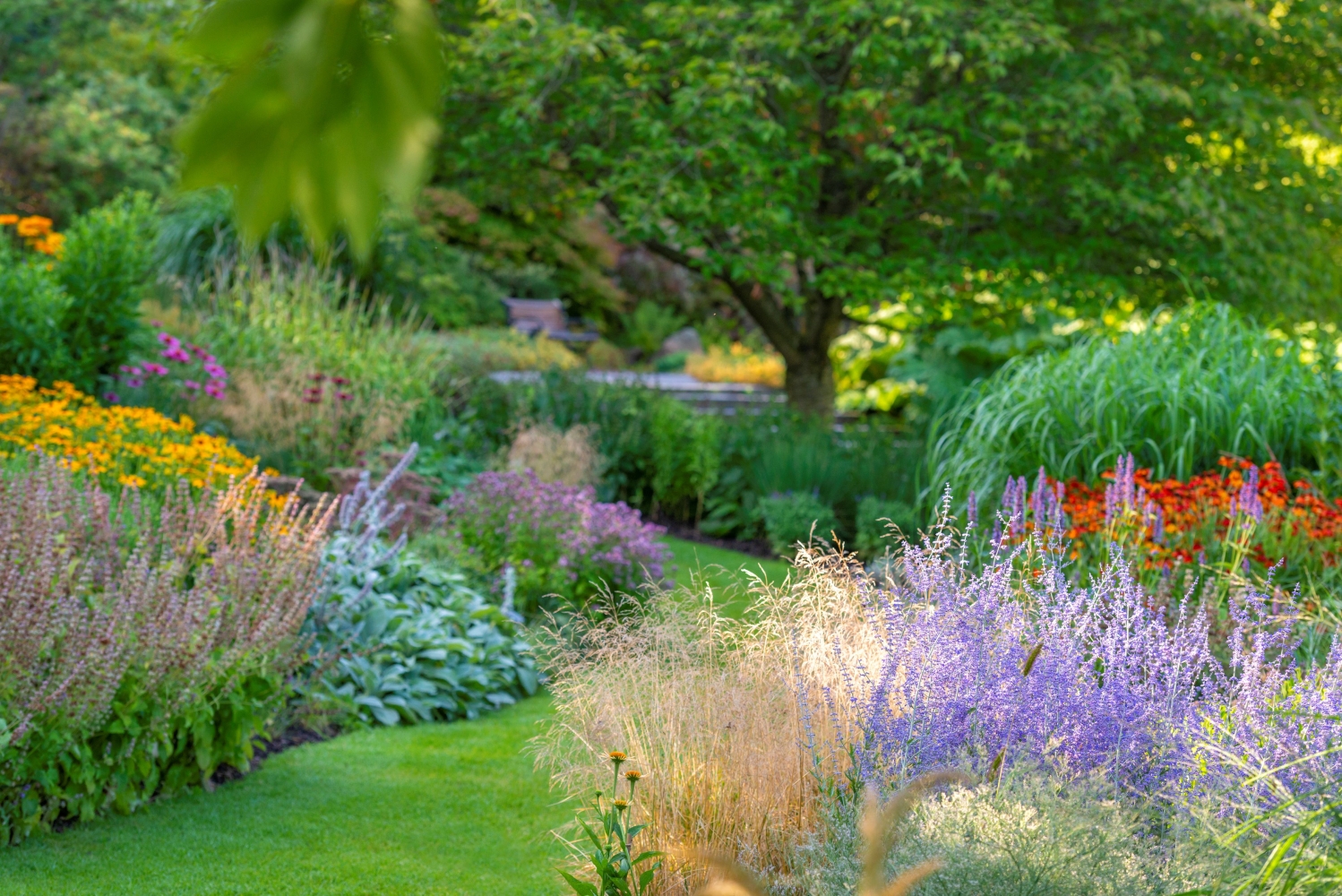Gardening for Wellbeing
The sight of sky and of things growing seem human needs, common to all.
Octavia Hill's statement was the inspiration behind our 2024 RHS Chelsea Show Garden. A founder of the National Trust, Octavia believed that everyone should have access to nature, especially in towns and cities, and worked hard to conserve green spaces.
The transformative influence of green spaces on mental and physical health
In our world of rapid urbanisation and the relentless pace of modern life, access to green spaces close to our homes has never been so important for overall wellbeing. Gardens, parks, and green areas not only provide a sanctuary from our busy daily lives, but also play an integral role in our mental and physical health.
The challenge of access to open, green spaces remains a critical issue, particularly for those living in deprived urban areas, which highlights broader social disparities. The ‘Space to Thrive’ report, written by Paul Farmer, CEO of mental health charity 'Mind', and published in 2020, emphasises the necessity of having parks and green spaces in close proximity to homes and bridging the ‘green divide’.
The report explains how green spaces and outdoor activities in nature play a pivotal role in promoting mental and physical health and how the proper development of parks and green spaces should be more prominent in government policy. These spaces offer more than just opportunities for physical exercise - they become places for social integration, community engagement and personal development.
One of the most profound benefits of parks and green spaces is their ability to offer a deep connection with nature, enhancing an individual's overall sense of wellbeing. Connecting with nature engages all the senses, relieving stress and plays a vital role in the recovery of mental illness.

Our gardens, irrespective of their size, induce relaxation and reduce stress. For those fortunate enough to possess an outdoor space, designing a garden with wellbeing at the heart becomes a powerful tool for personal health.
Gardening requires physical exercise, which can support a healthy and fulfilling lifestyle. This is echoed by a King's Fund report which found that gardening had many health benefits, ranging from reductions in depression and anxiety to improved social functioning and the prevention of cognitive decline.
In a world dominated by processed foods and convenience, growing our own produce is becoming more popular. Not only does this support physical health and nutrition but it also plays a crucial role in promoting mental wellbeing. The act of nurturing plants from seedlings to fully grown produce creates a sense of purpose, accomplishment, self-worth and happiness. Diets higher in plant foods and cardiac exercise have been linked to a lower risk of cardiovascular disease, reducing the likelihood of heart attacks and strokes.
One of the most compelling advantages of growing your own food is sharing your harvest with friends, family and the community. This provides a sense of achievement and fulfilment in the knowledge that you have contributed to nourishing others. This can spread beyond the garden and for many, an allotment becomes a 'wellbeing garden,' a space where the act of sowing seeds to produce fresh food becomes a source of joy and accomplishment. Allotment gardening, in particular, brings people together, creating community and shared purpose.
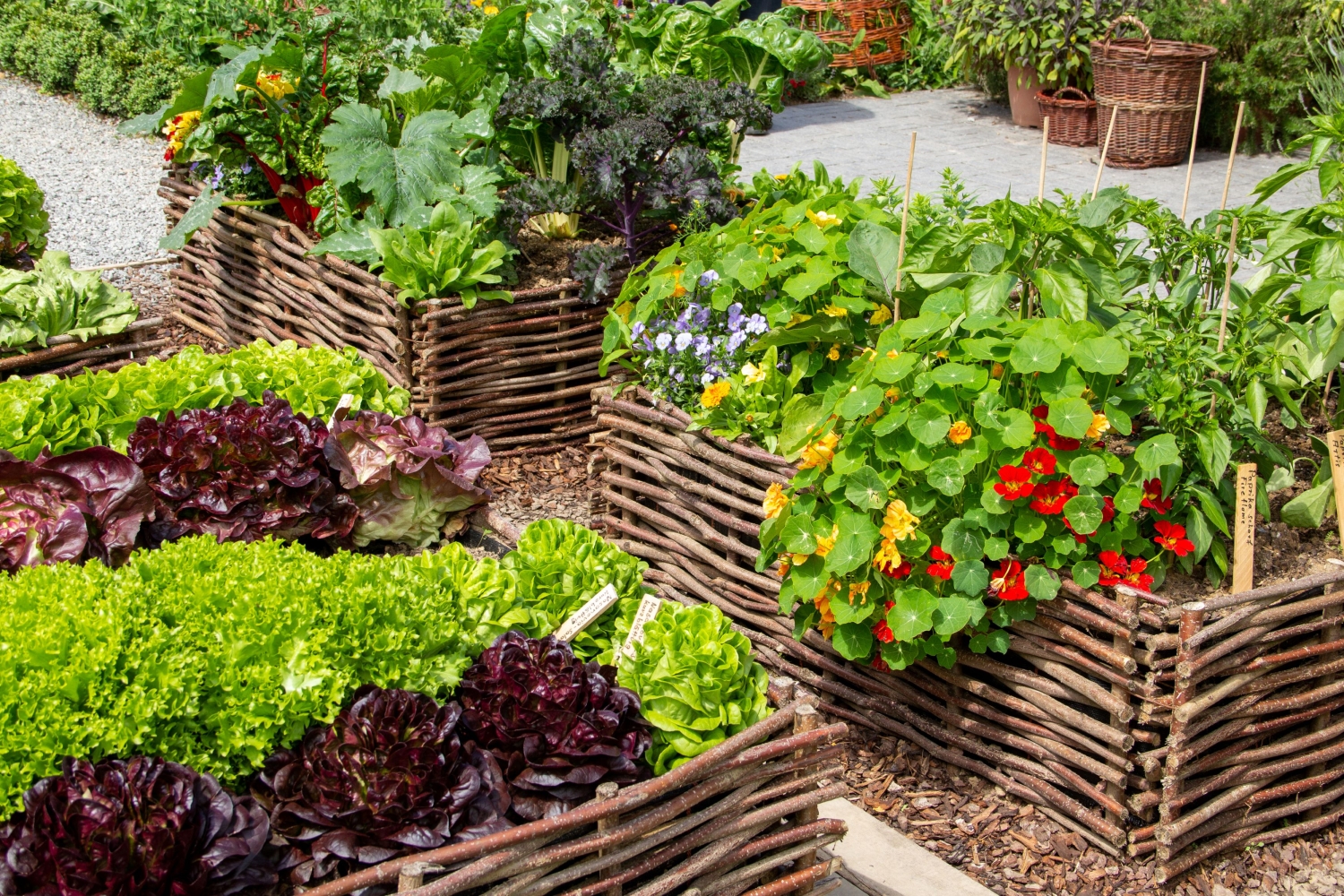
Consider colours and texture
Regardless of space, whether you have a garden, a balcony or window, you can contribute to biodiversity and reap the rewards. Consider colour and textures for variety and interest.
The colours of the plants we grow can impact on our emotional state. For example, plants with strong colours such as reds, oranges and yellows excite and stimulate the emotions making us feel happy and recharged. In contrast, blue and green tones create a serene ambiance enabling us to feel calm.
Repeated shapes and patterns (fractals) are found throughout nature in plants such as ferns and the branching of trees. These patterns have been known to calm the mind when being observed, and the viewer may find themselves in a peaceful and trance-like state.
Gardens that attract wildlife can deepen our connection to the natural world and promote mental wellbeing. You can create a safe sanctuary by providing food, shelter, and nesting sites which will all have a positive impact your mental health and overall sense of fulfilment as you have created a supportive environment.
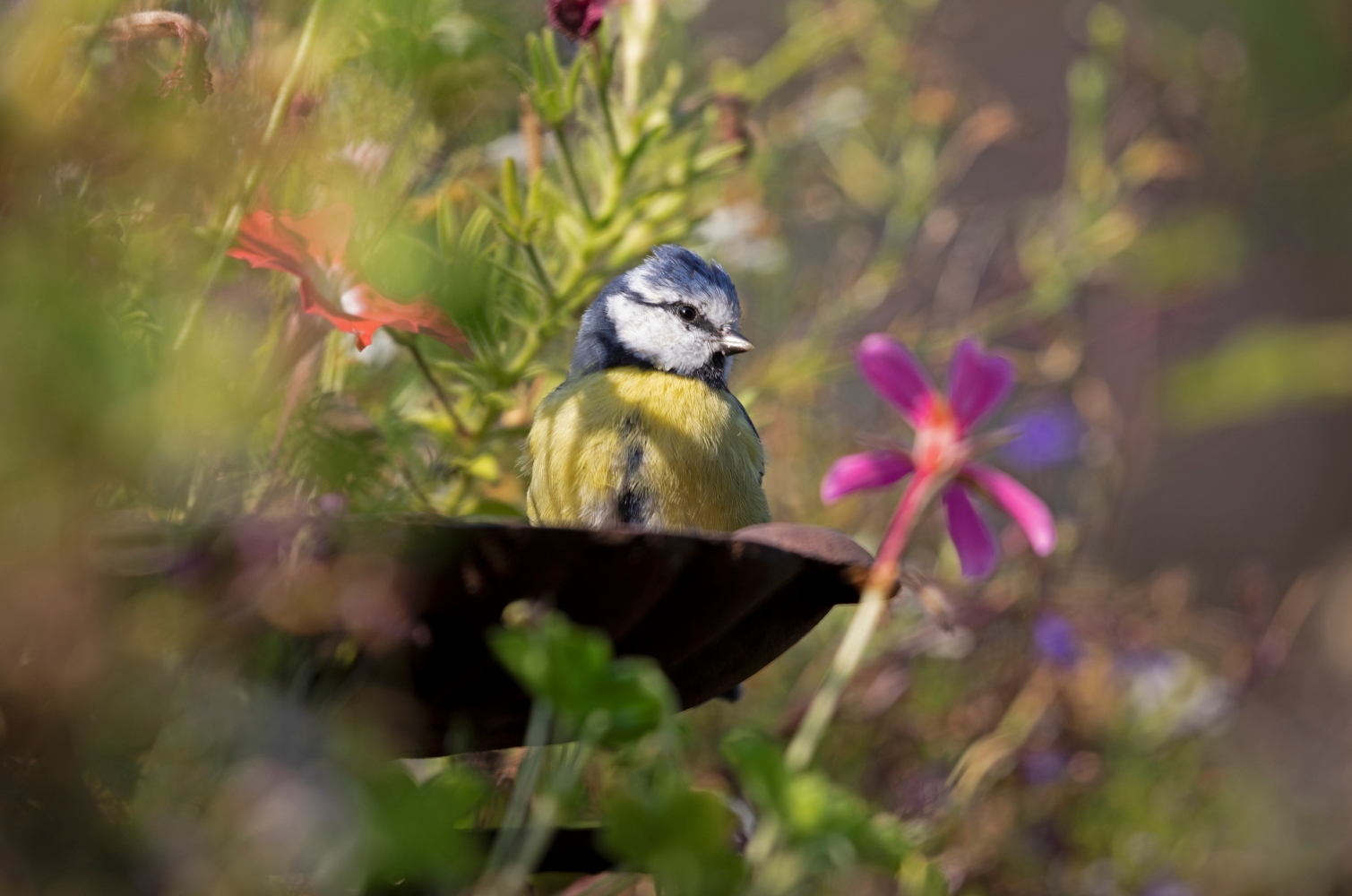
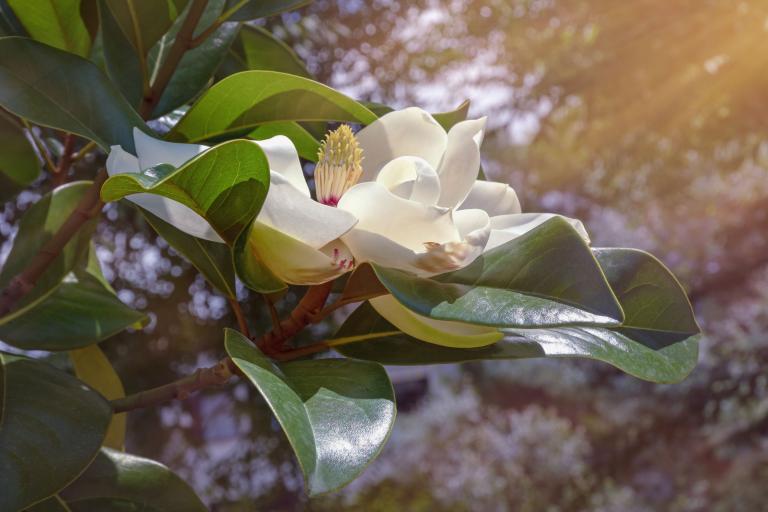
Create a peaceful environment
To achieve a peaceful environment, it is just as important to filter out harmful sounds as it is to encourage relaxing ones. A thoughtful and layered approach to garden planting offers additional benefits as strategically placed trees and shrubs can act as barriers to noise pollution.
Ideal plants for this job are:
Magnolia grandiflora
Privet - Ligustrum lucidum
Cherry Laurel - Prunus laurocerasus
Holly - Ilex
Leyland Cypress - Leylandii
Bamboo - Phyllostachys Aurea (to be planted in containers to prevent spreading out of control)
Guelder Rose - Viburnum
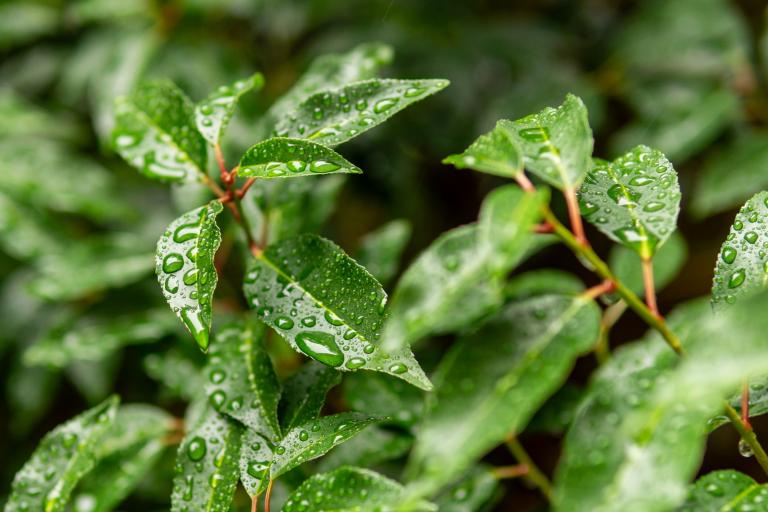
Plants to help reduce pollution
Choose plants that help reduce pollution in the air too and select others that are highly scented as these can have stress-reducing properties adding an extra layer of tranquillity to the garden space.
Some suggested plants for reducing air pollution are:
Western Red Cedar - Thuja plicata 'Atrovirens'
Cherry Laurel - Prunus laurocerasus 'Rotundifolia'
Shrubby Honeysuckle - Lonicera Nitida
Leylandii - Cupressocyparis x Leylandii
Franchet Cotoneaster - Cotoneaster Franchetii
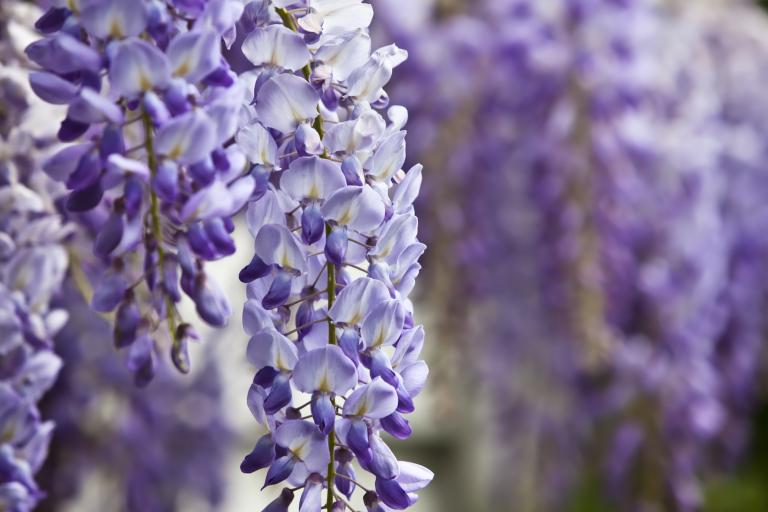
Plants for fragrance
Highly scented outdoor plants to consider are:
Wisteria - Fabaceae (Leguminosae)
Jasmine - Jasminum
Roses - Rosa
Lilac - Syringa
Carnation ‘Pinks’ - Dianthus
Honey Suckle - Lonicera
Phlox
Guelder Rose - Viburnum
Consider a water feature
Adding a water feature to a garden can attract a diverse range of wildlife such as insects, amphibians, birds, and mammals. The gentle sound of running water and the play of sunlight on the surface creates a calming atmosphere. Beyond the aesthetic appeal, incorporating water features supports wildlife and this too contributes to a sense of fulfilment, as you become a caretaker of a thriving ecosystem.
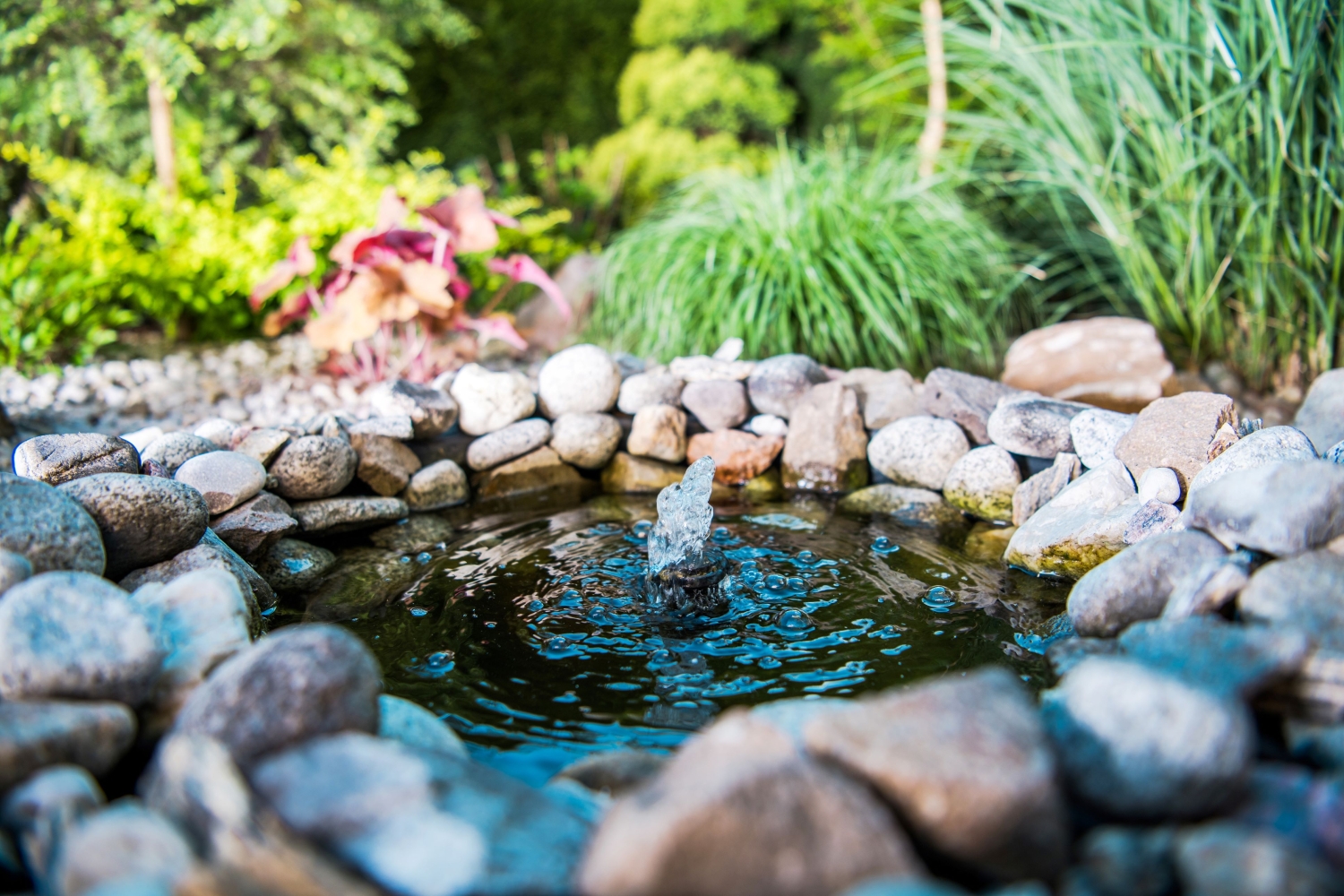
So, next time you are privileged enough to find a green space, whether that be in a public garden or your own private haven, slow down and take it all in. Become aware of your senses – what can you feel, hear, smell? Feel your heart rate lower, your mind clear and your body relax.
Allow nature to soothe you and bring you into its calm embrace.
